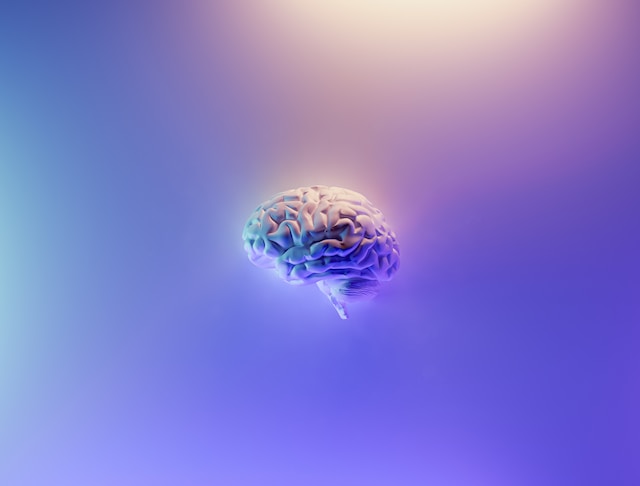In recent years, the intersection of artificial intelligence (AI) and mental health monitoring has emerged as a promising frontier in healthcare. As mental health disorders continue to affect millions globally, the need for innovative solutions to monitor, diagnose, and treat these conditions has never been more pressing. AI, with its ability to analyze vast amounts of data and identify patterns, offers unprecedented opportunities to revolutionize mental health care. This article explores the potential of AI in mental health monitoring, the challenges faced, and the future directions of this transformative technology.
The Promise of AI in Mental Health Monitoring
AI’s potential in mental health monitoring is vast, promising to enhance early detection, personalize treatment, and improve outcomes. Traditional mental health assessments often rely on self-reported data and clinical observations, which can be subjective and prone to inaccuracies. AI, on the other hand, can process data from various sources, including social media, wearable devices, and electronic health records, to provide a more comprehensive and objective assessment of an individual’s mental health.
Early Detection and Diagnosis:
AI algorithms can analyze patterns in speech, text, and behavior to detect early signs of mental health disorders. For instance, changes in language use on social media platforms have been linked to depression and anxiety. By monitoring these changes, AI can alert healthcare providers to potential mental health issues before they escalate. Similarly, AI-powered chatbots can engage users in conversations to identify symptoms of mental health disorders, providing an accessible and non-judgmental platform for individuals to express their concerns.
Personalized Treatment:
AI can also play a crucial role in personalizing mental health treatment. Machine learning algorithms can analyze data from various sources to identify which treatments are most effective for specific individuals. This personalized approach ensures that patients receive the most appropriate interventions, reducing the trial-and-error process often associated with mental health treatment. Moreover, AI can monitor patients’ progress in real-time, allowing healthcare providers to adjust treatment plans as needed.
Continuous Monitoring:
Wearable devices equipped with AI capabilities can continuously monitor physiological and behavioral data, providing insights into an individual’s mental health status. For example, changes in heart rate variability, sleep patterns, and physical activity can be indicative of stress or depression. By continuously collecting and analyzing this data, AI can provide real-time feedback and alerts, enabling timely interventions.

Challenges and Ethical Considerations
Despite its potential, the integration of AI in mental health monitoring is not without challenges. One of the primary concerns is data privacy. The sensitive nature of mental health data necessitates stringent measures to ensure its protection. Ensuring that AI systems are transparent and explainable is also crucial, as users and healthcare providers must understand how decisions are made.
Another challenge is the risk of bias in AI algorithms. If the data used to train these algorithms is not representative of diverse populations, the resulting models may be biased, leading to inaccurate assessments and recommendations. Addressing this issue requires the development of inclusive datasets and the continuous evaluation of AI systems to ensure fairness and accuracy.
Additionally, while AI can augment mental health care, it cannot replace the human touch. The therapeutic relationship between a patient and a mental health professional is invaluable, and AI should be seen as a tool to enhance, rather than replace, this relationship.
The Future of AI in Mental Health Monitoring
The future of mental health monitoring with AI is bright, with ongoing advancements in technology and research paving the way for more sophisticated and effective solutions. Here are some potential future directions:
Integration with Telehealth:
The COVID-19 pandemic has accelerated the adoption of telehealth, and AI can further enhance these services by providing real-time mental health assessments and interventions. AI-powered platforms can offer virtual therapy sessions, monitor patient progress, and provide personalized recommendations, making mental health care more accessible and convenient.
Development of Predictive Models:
AI can be used to develop predictive models that identify individuals at risk of developing mental health disorders. By analyzing historical data and identifying risk factors, these models can inform preventive measures and early interventions, ultimately reducing the prevalence of mental health issues.
Enhanced Collaboration:
AI can facilitate collaboration between mental health professionals by providing a centralized platform for sharing data and insights. This collaborative approach can lead to more comprehensive care plans and improved patient outcomes.
Expansion of AI Applications:
As AI technology continues to evolve, its applications in mental health monitoring will expand. For instance, virtual reality (VR) combined with AI could be used to simulate therapeutic environments, providing immersive experiences that aid in the treatment of phobias, PTSD, and other conditions.
Conclusion
The integration of AI in mental health monitoring holds immense potential to transform the field of mental health care. By enabling early detection, personalizing treatment, and providing continuous monitoring, AI can improve the quality and accessibility of mental health services. However, it is essential to address the challenges and ethical considerations associated with AI to ensure that its benefits are realized equitably and responsibly. As technology continues to advance, the future of mental health monitoring with AI promises to be both innovative and impactful, offering hope to millions affected by mental health disorders worldwide.









